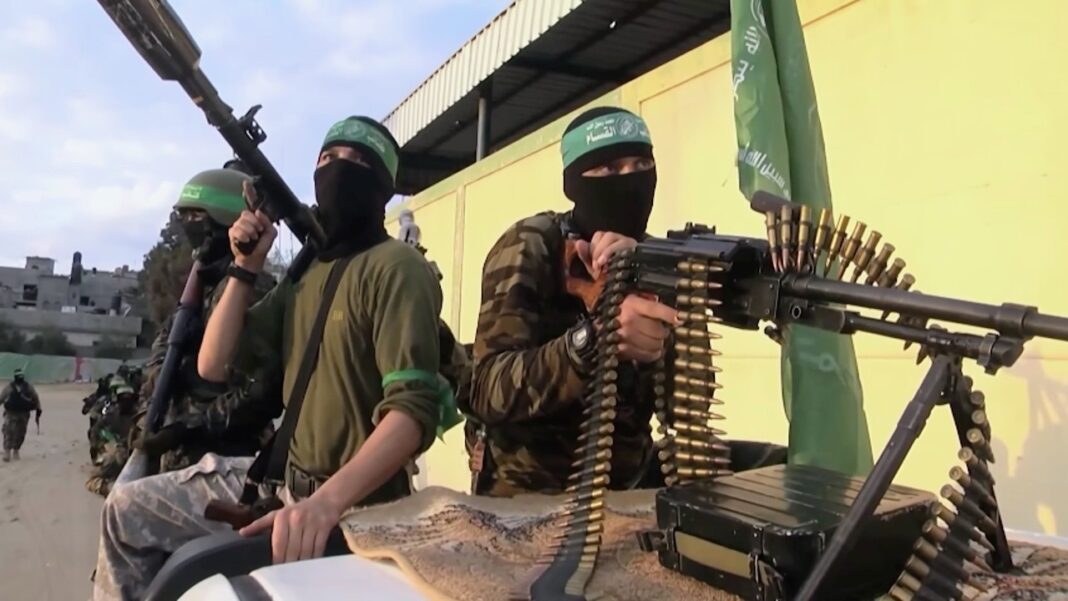|
Getting your Trinity Audio player ready...
|
A Year Under Siege: Israel Faced 18,000 Terror Attacks in 2024
Edited by: Fern Sidman
The year 2024 proved to be one of the most challenging in Israel’s recent history, with a staggering 18,365 terror attacks targeting the Jewish state from multiple fronts. This wave of violence, which claimed the lives of 134 people and injured 1,277 others, was detailed in a report released by Israel’s National Public Diplomacy Directorate in the Prime Minister’s Office. Drawing on comprehensive data from Israel’s security agencies and emergency response teams, the report paints a grim picture of the sustained and multifaceted threat Israel faced throughout the year.
According to The Jewish News Syndicate (JNS), the attacks originated from seven main fronts: Iran, Lebanon, Syria, the Gaza Strip, Iraq, Yemen, and within Israel itself. The overwhelming majority of the assaults involved rocket and missile barrages, with over 16,400 projectiles fired into Israeli territory. Of these, an alarming 15,400 were launched by Iranian-backed Hezbollah forces in Lebanon, while 700 originated from the Gaza Strip. October was particularly brutal, accounting for 6,900 of these attacks—the highest monthly total of the year.
Additionally, JNS reported that terrorists deployed 399 drones to penetrate Israeli airspace, with most originating from Lebanon. These aerial assaults exacted a heavy toll, killing 71 people—including 14 children—and injuring 892 others. Beyond the human cost, the onslaught of rockets, missiles, and drones sparked over 600 wildfires. The flames consumed 92,417 acres of land managed by the Israel Nature and Parks Authority and 42,749 acres of grazing land, causing widespread environmental and economic damage.
Alongside the aerial bombardments, Israel endured 1,900 other terrorist incidents in 2024, according to the JNS report. These included shootings, stabbings, car rammings, Molotov cocktail attacks, and bombings. Stone-throwing incidents, the most common form of ground attacks, accounted for 1,248 reported cases. Other tactics such as arson, tire burning, and object-throwing were used in 162 incidents, while Molotov cocktails (14), shootings (132), and the use of explosive devices (89) were also significant.
The most violent month was July, when 37 people were killed and another 394 were injured in terrorist incidents, according to the report. In contrast, November was the quietest month, with 109 reported attacks. Despite the monthly fluctuations, the data underscores the persistent nature of the threat.
Despite the scale of the attacks, Israeli security forces achieved significant success in thwarting additional plots. The Israel Security Agency (Shin Bet) revealed in its annual report, also cited by JNS, that over 1,000 major terrorist attacks were prevented in Judea, Samaria, and Jerusalem. Among these were 689 planned shootings, 326 bombing attempts, and other plots involving stabbings, car rammings, and abductions.
This proactive approach was critical in limiting the damage and preventing an even greater loss of life. However, the Shin Bet report also highlights the sheer scale of the threat Israel faces from adversaries operating within and beyond its borders.
A significant portion of the attacks can be traced back to Iranian-backed groups, particularly Hezbollah, which launched the majority of rockets and drones from Lebanon. As reported by JNS, Iran’s influence in fomenting violence through its proxies calls attention to its central role in destabilizing the region. The continued aggression from Iranian-aligned forces highlights the strategic challenge Israel faces in countering these threats.
Beyond the immediate loss of life and injuries, the year’s violence left a lasting impact on Israel’s environment and infrastructure. The wildfires caused by rockets and missiles not only destroyed natural reserves and grazing lands but also disrupted ecosystems and livelihoods. According to the information provided in the JNS report. the environmental toll has added a layer of complexity to the country’s recovery efforts, compounding the human tragedy.
The data from 2024 emphasizes the resilience of the Israeli people and their security forces in the face of sustained and multifaceted aggression. As the JNS report indicated, the scale and frequency of these attacks are a stark reminder of the challenges Israel faces in maintaining its security and sovereignty. The year’s events also highlight the importance of vigilance, innovation, and international cooperation in addressing the persistent threats posed by state and non-state actors in the region.
Looking ahead, Israel’s ability to adapt to these challenges while preserving its values and way of life will remain a critical test of its strength and determination. The report serves as both a sobering reminder of the past year’s toll and a call to action for continued vigilance and preparedness in the face of ongoing threats.




